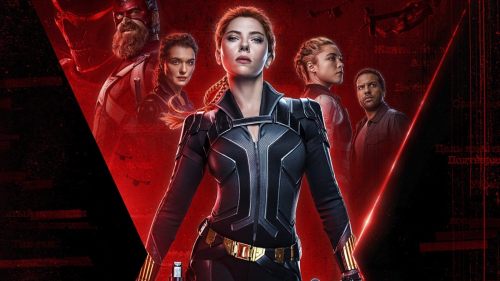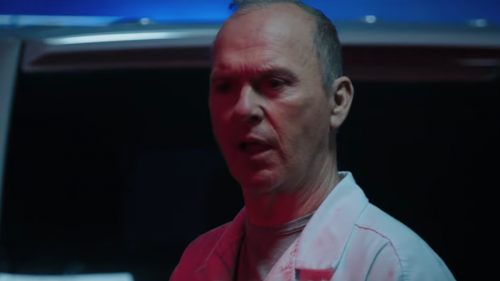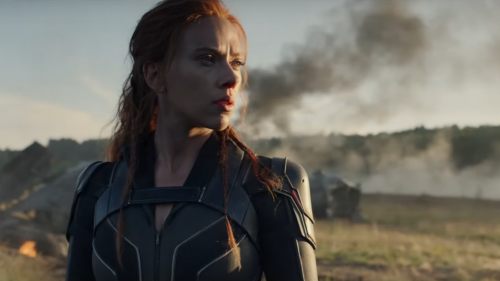A Look Back At THE ULTIMATES
In March 2002, six months after the September 11 terrorist attacks, Marvel Comics published the first issue of The Ultimates, a new series by writer Mark Millar and Bryan Hitch. The series was part of the company’s Ultimate Comics line, which reimagined their stable of superheroes in a new, rebooted continuity free of years of backstory and modernized for current pop culture sensibilities. The Ultimates was the Avengers, but re-envisioned as a military-backed, peacekeeping entity who were just as concerned about their fame and popularity as they were fighting super villains.
The initial series, under its original creators, would run twenty-eight issues, plus an annual; publishing its final issue in May 2007. The following summer Iron Man would be released in theaters, launching the Marvel Cinematic Universe. Revisiting The Ultimates post-Avengers: Endgame and a decade worth of MCU films, it’s clear that the MCU owes a lot to what Millar and Hitch churned out in their serialized series. It’s also very clear that The Ultimates comes from an era of Marvel that no longer exists, probably for the best.
The Ultimates is, in many ways, the peak of Mark Millar’s superhero comic career. While the writer is still very much busy today - having partnered with Netflix to publish a new line of comics that the streaming service will then harvest for content to adapt as series and films - The Ultimates represents everything that Millar spent the first half of his career building towards. From his run on The Authority (a series in which Millar created a superhero team called the Americans, who were clear analogies for the Avengers, and then proceeded to have them brutally murdered in ultra-gory, over-the-top ways) to his work on Ultimate X-Men, Millar was building towards an exploration of superheroes as fascists - leather-clad, government-sanctioned weapons of mass destruction. The Ultimates might just be his masterpiece.
The series saw Millar, alongside artist Bryan Hitch’s ultra-detailed illustrations, turn the Avengers into a Michael Bay-sanctioned summer blockbuster. Incredible action, surprising twists, memorable set pieces told through beautiful splash pages and - at the center of everything - a collection of morally questionable heroes who were more than likely to be felled by their own vices than any costumed villain.
Captain America was toxic masculinity draped in a flag. Focusing on the angle that this was a 1940s man thrust into a modern world, Millar had Steve Rogers portrayed as an ultra-possessive boyfriend who tolerated his female teammates’ social liberation. Thor was a mentally-unstable cult leader whose fellow Avengers doubted his proclaimed godhood. The Hulk was the horny, cannibalistic id for Bruce Banner, a pop culture-loving incel whose girlfriend enjoyed playing mind games with the sexually frustrated scientist. Tony Stark was an alcoholic version of Richard Branson, in search of adventure and women who could take his mind off the fact that he had a tumor growing in his head. Hank Pym, who had in the canonical Marvel Universe slapped his wife, now had a history of frequently beating Janet Pym within an inch of her life, with Janet always coming back to Hank due to her self-esteem issues. The Ultimates were the Avengers written as HBO characters. People love anti-heroes, though, and Millar’s interpretation of The Ultimates was a hit with readers. Fans lauded the nuanced, morally grey interpretations of the heroes, with issues frequently selling out despite the series’ notoriety for being released late and with big gaps between issues.
Revising The Ultimates today, the series is, without question, an entertaining read. Part of a wave of decompressed storytelling that hit comics in the early 2000s, The Ultimates took its time establishing characters - going five issues before the team even had a traditional comic book fight. Millar and Hitch’s series reads like a template for summer blockbusters, with each volume following the traditional three-act story structure over their respective fourteen issues. And Millar knew what he was doing by creating a series that aped the sensibilities of a summer blockbuster - the characters spend one issue talking about which actors would play them in a movie adaptation of their lives. By injecting Hollywood DNA into his series, Millar was ensuring that whenever Marvel turned their characters into films, they would invariably look to Millar’s work for inspiration.
While The Ultimates still functions perfectly as a fun piece of bombastic entertainment - with giant battles involving hundreds of characters, including then-President George W. Bush in a supporting role - there is an overall tone to the series that just does not settle well in today’s climate. A nastiness seeps through the series, with Millar going out of his way to write despicable characters that are nightmare counterparts to the hopeful and heroic Avengers that Stan Lee and pals brought to life in the ‘60s. Some might say that Millar was just writing the heroes in a realistic way, but there’s a difference between realism and the intentionally shocking scenarios that Millar and Hitch were creating.
Millar is a provocateur at heart - his books are filled to the brim with dialogue, plot twists and scenarios that are almost scientifically designed to piss people off. From Kick-Ass to Wanted to Nemesis to The Unfunnies and Chosen (later republished as American Jesus), Millar’s books can be accused of being juvenile, incendiary and outrageous. Most of them, though, are not exceptionally deep. Millar’s books are entertaining, but they are entertaining in the same way watching trolls pwn noobs on 4Chan can be entertaining. The Ultimates, with its use of words that have wisely been retired from acceptable usage, depiction of gay panic and casual use of misogyny, definitely reads like something from the early 2000s, for better or worse.
The biggest question about The Ultimates that I can’t quite figure out is whether or not the series is a celebration of America or a parody of it. First released in the months after 9/11, the series isn’t quite the political farce that Team America: World Police is, but Millar turns the Avengers into a militarized police force who take it upon themselves to destabilize Middle Eastern countries and instigate an arms race where countries are trying to develop superhumans. There’s an over-the-top jingoism to the series that definitely reads at times as Millar giving post-9/11 America a raspberry. That said, conservative readers can (and do) read the book as a love letter to America as the world’s dominant superpower. Whether or not Millar was celebrating or making fun of the country, The Ultimates reads very differently now than it did in 2002. The series’ over-the-top hostility towards both its characters and its readers reminds me of Donald Trump’s tweets - all sound and fury but with a confusing message at the heart. The MCU has shown that audiences will rally behind emotionally earnest heroes, so Millar’s crass cynicism in The Ultimates feels unnecessary and frequently unpleasant.
That said, there is still so much in the book that works incredibly well. Nick Fury is a fascinating character under Millar’s pen. It’s clear why Samuel L. Jackson was the natural choice to bring the character to life in the MCU after reading the series, but there is also a sweetness and tenderness to him and his relationship with the Ultimates that never made the jump to the big screen. Captain America has a very sweet relationship with Bucky who, in this interpretation, survived World War II and is a happy geriatric married to Cap’s old sweetheart. I like the idea of Captain America being most comfortable among people from his generation. The character work - when it’s not being overly nasty - is fun and the sharp, witty dialogue matched with Hitch’s incredibly realistic artwork make the series a fast, thrilling read.
More so, the series remains an incredibly important part of Marvel’s legacy. So many elements of the MCU are directly pulled from this series - Samuel L. Jackson as Nick Fury, the idea of SHIELD being responsible for the creation of the team, Black Widow and especially Hawkeye’s interpretations in the films, the creation of the Hulk being a by-product of the search for the super soldier serum; these are just a few of Millar’s ideas that made it to the big screen. More so, The Ultimates’ success as a comic book series lead to Millar writing the Civil War mini-series, a comic book event whose repercussions would lead to the next decade worth of stories from Marvel both in comics and onscreen.
After Millar and Hitch left the book, The Ultimates got worse. Much, much worse, with a parade of writers and artists - including Millar returning to the series - never able to match the high of the first twenty-eight issues. The Ultimate Comics line of books would eventually end in 2015 but The Ultimates’ legacy remains. From the pieces of the series that Kevin Feige would pick out to use in the Marvel Cinematic Universe to the mostly forgotten animated film adaptations that Lions Gate would release in 2006 to the influences Millar’s characters had in the main Marvel Comics universe, The Ultimates has permanently made its mark on the Marvel Universe and fan perceptions of the characters, for better or worse.
At least we didn’t get a scene in The Avengers where the Hulk tried to eat Freddie Prinze, Jr. for going on a date with Betty Ross.



